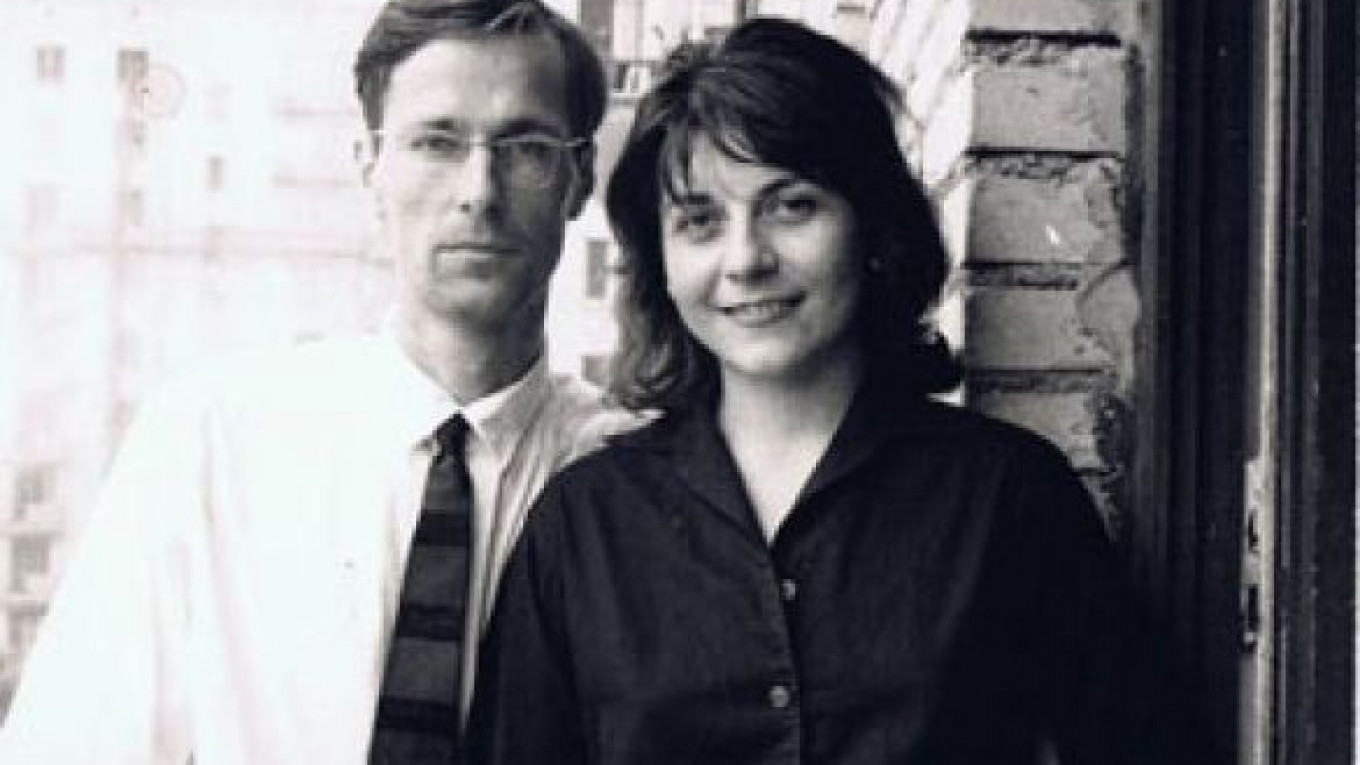He was a painter, sculptor and poet in England, in exile from his native Russia, the country that knows and loves his father, composer Sergei Prokofiev, but knows far less about the younger Prokofiev’s work.
Twelve years after the death of Oleg Prokofiev, the Tretyakov Gallery intends to amend this with an exhibition of his work, which has been put together with the help of his family, the British Embassy and the London-based East Hill Gallery.
“What is really important for us is that Oleg’s works are now shown in such a prestigious gallery,” his son Gabriel Prokofiev, a composer himself, said at a reception to mark the exhibition’s opening at the British Embassy. “He would have been proud. Art needs to live.”
Born in 1928, Oleg Prokofiev spent the first eight years of his life in Paris. His father had left the Soviet Union after the Revolution and only returned to his homeland in 1936. His son went with him and studied at the Moscow School of Art, becoming an artist of abstract meditative compositions, utterly in opposition to the socialist realist credo of the day.
He took part in underground exhibits in the 1950s and ’60s and studied under Robert Falk, one of the founders of the pre-World War I art movement Jack of Diamonds, who taught many of the artists that appeared during the Khrushchev thaw. Falk had a big influence on Prokofiev, as did his father.
“I used to listen to my father’s music regularly, sometimes for no special reason. I like many of his works — no doubt they serve as a stimulus for my poetry or paintings,” he says in a book by Olga Mamonova Baker, owner of the East Hill Gallery, written to accompany the exhibition. “Usually they provoke a desire in me to get down to work, to create. They give me a wave of some wonderful energy that brings to the surface a poetic or artistic impulse.”
“Oleg Prokofiev projected the structure, the harmony or disharmony of his father’s music,” Mamonova Baker said.
Prokofiev met and married British art historian Camilla Gray, the author of the seminal study of Russian avant-garde art, “The Great Experiment: Russian art, 1863-1922,” and after her tragic death in 1971, he was allowed to leave the Soviet Union with their daughter Anastasia and settle in England.
The exhibition unites the art from before and after his departure.
“When Prokofiev was leaving Moscow, it was impossible to take his paintings along with him,” said Irina Lebedeva, director of the Tretyakov Gallery. “They stayed in the attic of his house in Istra, preserved by the painter [Dmitry] Zhilinsky, then were moved to the Tsaritsyno museum.”
The paintings stayed hidden away until 2002, when they were moved to a storage facility belonging to the Tretyakov gallery.? “We wanted to organize a little exhibition, but did not have any contact with the Prokofiev family in London,” Lebedeva said.
Luckily, a similar idea had occurred in London after Mamonova Baker met some of Prokofiev’s family and contacted the Tretyakov Gallery about cooperating on an exhibition. “That’s how we managed to show Prokofiev’s Russian works and the works in exile,” she said.
The Prokofiev family has donated 50 of the 400 or so works on display, said Kiril Svetlyakov, head of the gallery’s new art movements department, allowing visitors to see the progression in his work.
“It is very rare when painters from the 1950s and ’60s can be rediscovered,” Svetlyakov said. “Now we can show his evolution as an artist, from early works till the emigration, all his experiments with colors and objects.”
“Oleg Prokofiev. The Return.” Tretyakov Gallery, 10 Krimsky Val. Metro Park Kultury. www.tretyakov.ru
A Message from The Moscow Times:
Dear readers,
We are facing unprecedented challenges. Russia's Prosecutor General's Office has designated The Moscow Times as an "undesirable" organization, criminalizing our work and putting our staff at risk of prosecution. This follows our earlier unjust labeling as a "foreign agent."
These actions are direct attempts to silence independent journalism in Russia. The authorities claim our work "discredits the decisions of the Russian leadership." We see things differently: we strive to provide accurate, unbiased reporting on Russia.
We, the journalists of The Moscow Times, refuse to be silenced. But to continue our work, we need your help.
Your support, no matter how small, makes a world of difference. If you can, please support us monthly starting from just $2. It's quick to set up, and every contribution makes a significant impact.
By supporting The Moscow Times, you're defending open, independent journalism in the face of repression. Thank you for standing with us.
Remind me later.


